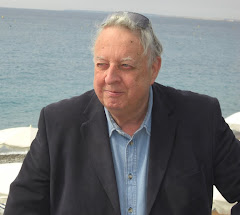There are composers with whose music I seem to have an immediate rapport:
Handel, Schubert, Bruckner, Rachmaninov, and Shostakovich, for
example. We are on the same wavelength. So it was a good day when two
new CDs arrived in my mailbox this week: Shostakovich's piano
quintet, and eighth string quartet. And Rachmaninov's second piano
concerto, plus the opus 33 études-tableaux.
All praise to Dmitry
Shostakovich. He wrote music that is very much of the twentieth
century, avoiding the post-romantic language of Medtner or
Rachmaninov, whilst retaining themes, melody, and folk elements, but
avoiding the tuneless meanderings of so many twentieth century
composers. I have always loved his piano quintet (along with the
second piano trio). The performance recorded in Prague in 2001 and
featuring the Talich Quartet with a pianist named Yakov Kasman
seems to me to be well nigh ideal for its playing, interpretation,
balance, and recording. I sat back and enjoyed the ride. The
performance on the same CD of the eighth string quartet is also
excellent; I enjoy the sound of the Talich, and the spaciousness of
the recording. I have never quite understood why the eighth quartet,
fine as it is, is promoted above so many of the other string quartets
of Shostakovich. A bit like Beethoven's “Moonlight” sonata being
over exposed.
Then on to Boris
Giltburg playing Rachmaninov, to fill my week of musical gloom
and angst (there is nothing like the Russians to express the
dark side of life). I like Boris Giltburg, particularly when he plays
the music of Shostakovich and Rachmaninov, and he does not disappoint
here. He is not a pianist to over-egg the pudding, but he has the
technique and the musical intelligence to turn in excellent
performances. This is yet another excellent performance of
Rachmaninov's ever-popular second piano concerto, and an excellent
rendition of the nine études-tableaux of Opus 33. As “encores”,
Giltburg gives us Rachmaninov's arrangement of Kreisler's Liebesleid,
and of Franz Behr's “Polka de W.R.” Both highly enjoyable.
A good two hours of the
Russians, then. I now need some Handel to cheer me up after all that
gloom and angst.

No comments:
Post a Comment